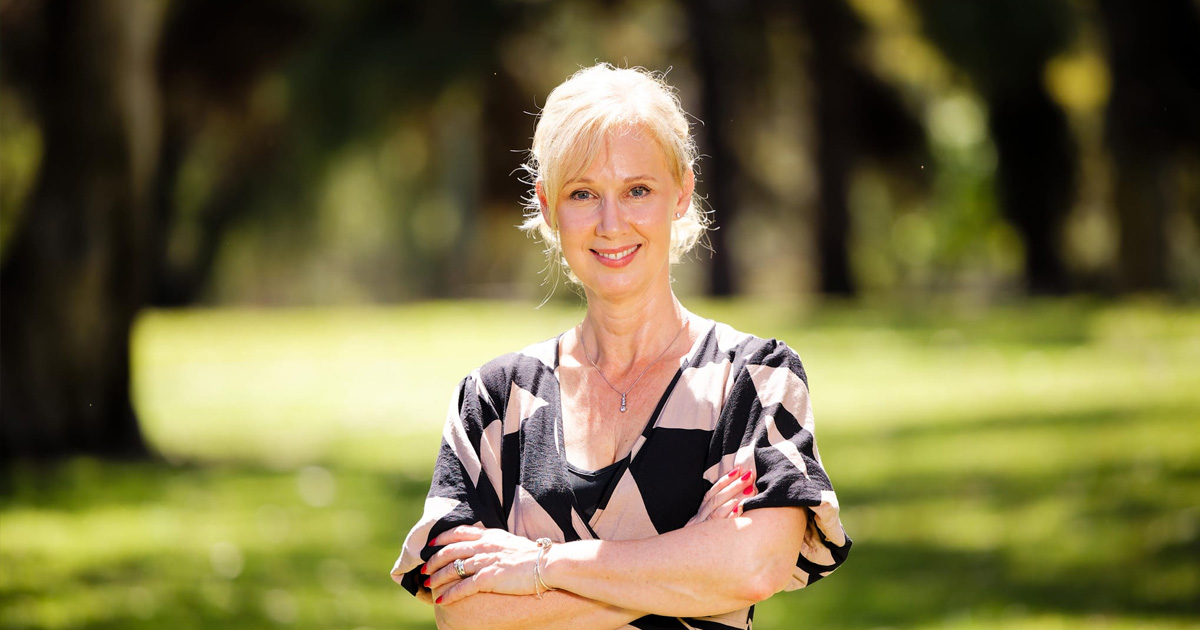
In honour of International Day of Women and Girls in Science, we celebrate women in STEM and their incredible contributions to the field, aiming to inspire the next generation of female scientists.
At The Kids Research Institute Australia, more than 800 women contribute to child health research, representing 74% of our researchers, program management staff, students, honoraries and volunteers!
We're thrilled to feature Dr. Jackie Davis, Co-Director of ORIGINS and a leading child health researcher at The Kids, as part of our celebration. Dr. Davis shares her insights on science, mentorship, and the importance of supporting women in STEM.
Q&A with Dr. Jackie Davis
What sparked your initial interest in science, and specifically, the field you're in now?
I have had a non-traditional career pathway to get to where I am today. After completing a Science degree, I worked in a variety of industries that didn’t spark my passion. While taking time off to have children, I returned to study and worked in health promotion and population health. Working in primary and secondary prevention ignited my enthusiasm for early intervention to achieve the best outcomes, particularly for vulnerable populations.
I feel very privileged to have had the opportunity to grow my career at The Kids and with ORIGINS, completing my PhD in 2023. ORIGINS facilitates excellent scientific research in prevention and early intervention at the start of life. My field of research is in perinatal emotional wellbeing and mental health, and there is so much potential to make a difference in this field, to better support women during, and post-pregnancy, to enhance outcomes in their children.
Were there any particular female role models or mentors who inspired you along your journey?
I am working with some wonderful female leaders, most of whom are paediatricians, in WA and interstate. Not only are they committed to improving the lives of children, but they are also positive and thoughtful women. Additionally, I have had the privilege of mentorship from Professor Fiona Stanley over a few years – one hour with Fiona is equivalent to a day of learning. She is truly insightful and inspiring.
While with ORIGINS and through my research, I have had the opportunity to meet with many participants and interview mothers. These women – some of whom are struggling in the first few years of motherhood - voluntarily give up their time to help others. They are amazing role models for other women.
What were some of the biggest challenges you faced as a woman in science, and how did you overcome them?
Women in science – and in many industries – face ongoing challenges to be recognised as leaders for who they are, particularly in Western Australia. I would love to see more genuine female leaders who are kind, compassionate and caring. Unfortunately, women tend to suffer from imposter syndrome more than men, but we should be confident in our innate multitasking superpowers – not only do many women have fulfilling careers, but they are often primary carers, domestic goddesses, and many other things.
What advice would you give to young girls and women considering a career in STEM?
I have two adult daughters (and one son) – both have undertaken science degrees. Women in STEM now more than ever feel empowered to make positive change in the field of science without the limitations that women in the past may have had. Working in science makes me feel like I am giving back to society while also being intellectually challenged. It is great that both women and men can learn from each other. Science is an exciting field to work in and an opportunity to make a genuine difference.
What do you find most rewarding about working in scientific research, and specifically, your role in child health research and the ORIGINS Team?
Every day is different. Some days are challenging but most days are interesting and rewarding, sometimes fun. We have a great ORIGINS team who support each other and are proud of the work they do. If you look forward to being at work with your colleagues, who share the same passion and intellectual curiosity, you are definitely in the right job. I am so lucky my job is in scientific research, and I can, not only co-lead ORIGINS, but also undertake my own research in a field I’m very passionate about.
What more can be done to encourage and support girls and women in pursuing and succeeding in STEM careers?
I think it’s important to expand the roles and recognition of who is involved in scientific research. As a female, you can still be part of many aspects of research discovery without being a traditional researcher. There are many clever, articulate, and confident women at the Institute, not only researchers but in project management and professional services. Promoting these alternative career pathways may encourage more girls and women to pursue and succeed in playing supportive but critical roles in science.
What do you enjoy doing outside of your work in science?
So many things but the top three are:
- Hanging out with my husband and children at South beach in Freo with our two golden retrievers.
- Travelling – I always have at least one holiday planned.
- My daily coffee (long Mac, topped up) – tastes even better when I’m with friends.
